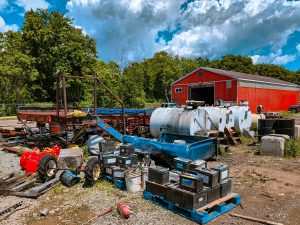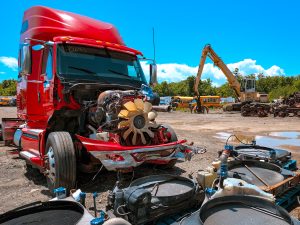
Overview
Scrap yards, also known as junk yards or salvage yards, are businesses that specialize in the collection and sale of used or salvaged materials. These materials may include metal, appliances, auto parts, and other items that can be recycled or reused. Scrap yards have a long history, and they play a number of important roles in modern society.
A Brief History of Scrap Yard

The history of scrap yards can be traced back to ancient civilizations, where people would gather to trade and sell old or used items. In medieval Europe, traveling peddlers would collect scrap metal and other materials from households and sell them to blacksmiths and other craftsmen for reuse. In the 19th and early 20th centuries, scrap yards became more organized and began to specialize in the collection and sale of specific materials, such as iron or copper. These yards were often located near industrial areas and served as a source of raw materials for manufacturers.
The Role of Scrap Yard in Modern Society

Scrap yards continue to play an important role in modern society by recycling and reusing materials, conserving natural resources, protecting the environment, and providing employment and economic benefits. Many scrap yards have implemented environmentally-friendly practices to minimize their impact on the environment. Scrap yards also serve as a useful resource for people looking for affordable parts and materials for repairs and projects.
Truck Wreckers: Specialized Scrap Yard for Heavy Trucks

Truck wreckers, also known as truck salvage yards or truck scrap yards, specialize in the collection and sale of used heavy truck parts. These businesses may also offer services such as towing and transportation. Truck wreckers play a similar role in modern society as scrap yards, helping to recycle and reuse materials, conserve natural resources, and provide economic benefits. They can be a useful resource for people looking for affordable heavy truck parts and services.
Conclusion
In conclusion, scrap yards and truck wreckers have a long history and continue to play a valuable role in modern society by helping to recycle and reuse materials, conserve natural resources, protect the environment, and provide employment and transportation services. These businesses serve an important purpose and contribute to the sustainability and efficiency of our world.
